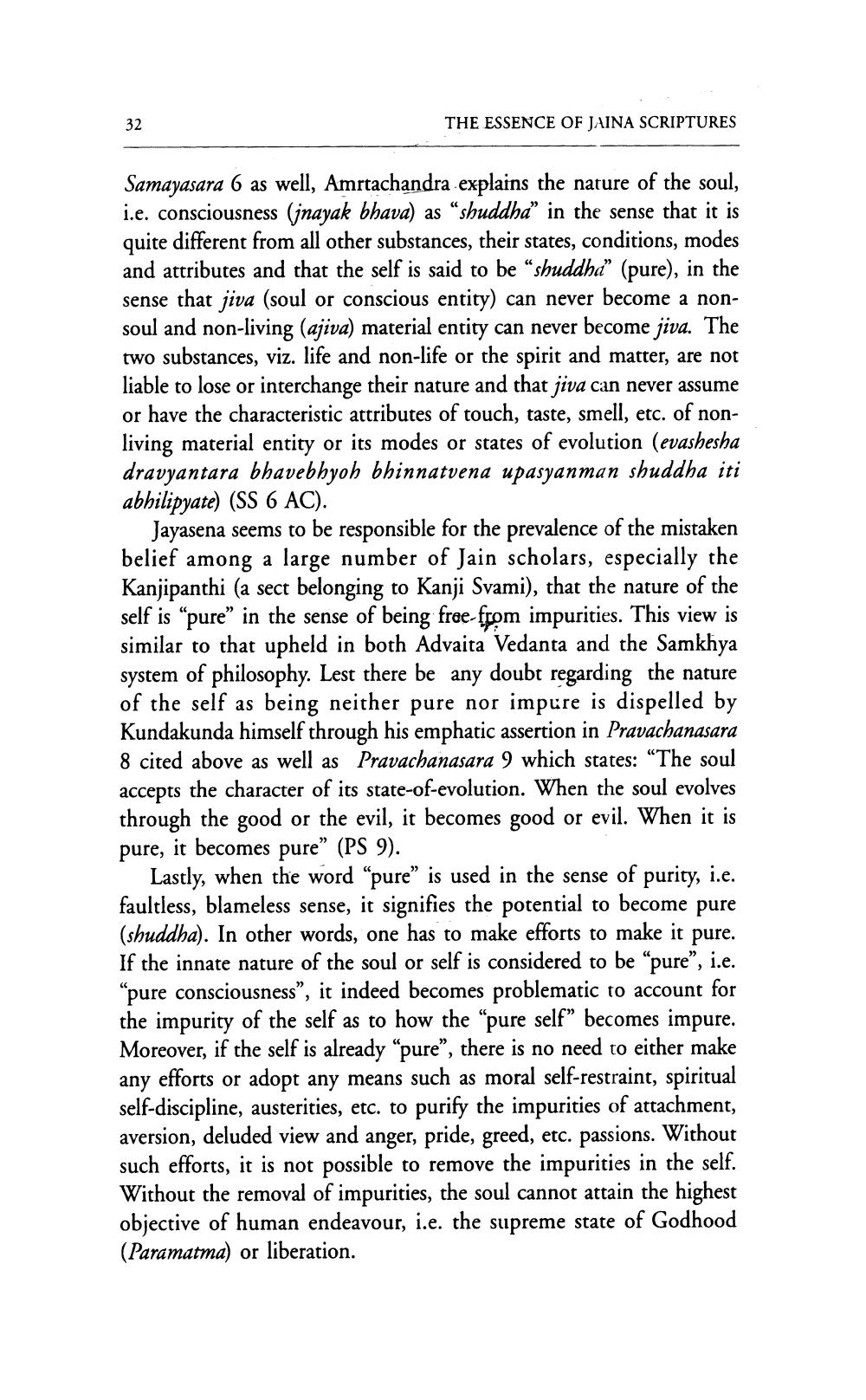________________
32
THE ESSENCE OF JAINA SCRIPTURES
Samayasara 6 as well, Amrtachandra explains the nature of the soul, i.e. consciousness (inayak bhava) as “shuddha” in the sense that it is quite different from all other substances, their states, conditions, modes and attributes and that the self is said to be “shuddhd” (pure), in the sense that jiva (soul or conscious entity) can never become a nonsoul and non-living (ajiva) material entity can never become jiva. The two substances, viz. life and non-life or the spirit and matter, are not liable to lose or interchange their nature and that jiva can never assume or have the characteristic attributes of touch, taste, smell, etc. of nonliving material entity or its modes or states of evolution (evashesha dravyantara bhavebhyoh bhinnatvena upasyanman shuddha iti abhilipyate) (SS 6 AC).
Jayasena seems to be responsible for the prevalence of the mistaken belief among a large number of Jain scholars, especially the Kanjipanthi (a sect belonging to Kanji Svami), that the nature of the self is “pure” in the sense of being free from impurities. This view is similar to that upheld in both Advaita Vedanta and the Samkhya system of philosophy. Lest there be any doubt regarding the nature of the self as being neither pure nor impure is dispelled by Kundakunda himself through his emphatic assertion in Pravachanasara 8 cited above as well as Pravachanasara 9 which states: “The soul accepts the character of its state-of-evolution. When the soul evolves through the good or the evil, it becomes good or evil. When it is pure, it becomes pure” (PS 9).
Lastly, when the word "pure” is used in the sense of purity, i.e. faultless, blameless sense, it signifies the potential to become pure (shuddha). In other words, one has to make efforts to make it pure. If the innate nature of the soul or self is considered to be "pure”, i.e. "pure consciousness”, it indeed becomes problematic to account for the impurity of the self as to how the “pure self” becomes impure. Moreover, if the self is already “pure”, there is no need to either make any efforts or adopt any means such as moral self-restraint, spiritual self-discipline, austerities, etc. to purify the impurities of attachment, aversion, deluded view and anger, pride, greed, etc. passions. Without such efforts, it is not possible to remove the impurities in the self. Without the removal of impurities, the soul cannot attain the highest objective of human endeavour, i.e. the supreme state of Godhood (Paramatma) or liberation.




